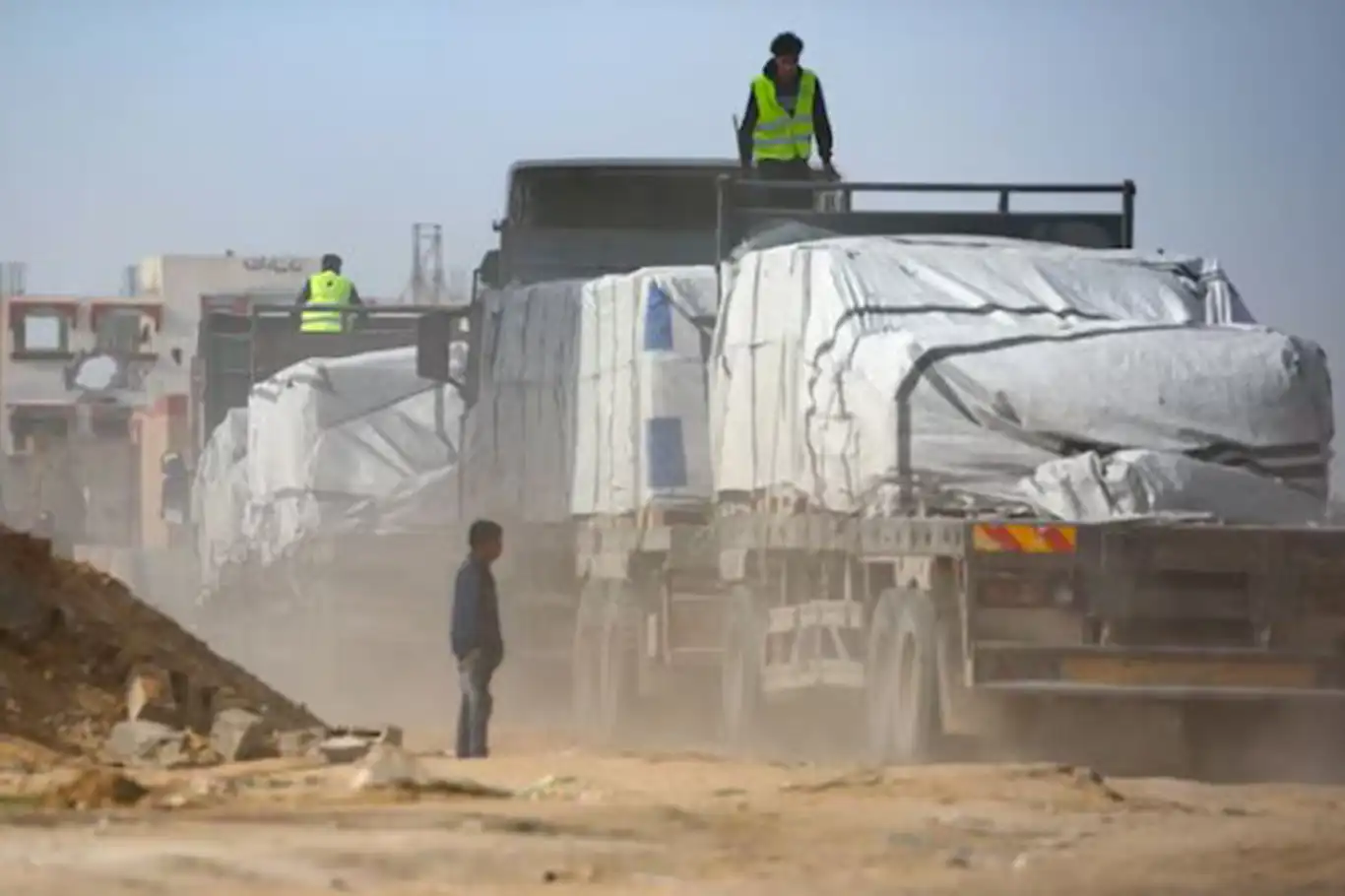UN: Israeli restrictions still obstructing humanitarian aid to Gaza despite ceasefire


The United Nations has warned that Israeli restrictions continue to cripple humanitarian operations in the Gaza Strip, one month after the ceasefire agreement took effect, leaving millions of Palestinians in desperate need of food, medical care, and shelter.
UN spokesperson Farhan Haq, citing the Office for the Coordination of Humanitarian Affairs (OCHA), said on Monday that aid delivery remains severely limited due to Israeli-imposed “red tape,” restrictions on humanitarian agencies, and the ongoing closure of critical border crossings.
“One month into the ceasefire, efforts to ramp up aid are still being held back by red tape, ongoing bans on key humanitarian partners, too few crossings and routes, and insecurity that persists despite the ceasefire,” Haq told reporters at a press briefing in New York.
According to Haq, Israel facilitated only two of eight planned humanitarian missions in the past week, while four were blocked or delayed. “In some areas, our teams still have to coordinate every movement in advance with the Israeli authorities,” he said. One convoy, he added, “was delayed for more than 10 hours before finally receiving permission to move.”
When asked about the reason for the delay in opening additional crossings into Gaza, Haq was direct: “The holdup is on the Israeli side. We’ve been asking them and trying to coordinate with them to get more crossings opened, but they still have not done so,” he said.
Currently, the Kerem Shalom crossing remains the only fully operational entry point for limited humanitarian goods, while the Rafah crossing with Egypt has been effectively shut down due to Israeli military control over southern Gaza since May. The lack of access has caused widespread shortages of food, fuel, and medical supplies.
According to the Gaza Health Ministry, Israel’s genocidal war since October 2023 has killed more than 69,000 Palestinians and injured over 170,600, the vast majority of them women and children.
UN agencies report that more than 80% of Gaza’s 2.3 million residents have been displaced from their homes, with hundreds of thousands now living in makeshift shelters and tents under appalling conditions.
UNRWA officials say more than 1.8 million people are now entirely dependent on food aid, while water and sanitation systems have collapsed, raising fears of disease outbreaks such as cholera and hepatitis. Hospitals remain overwhelmed, operating with little fuel and minimal medical supplies.
“Children are dying from dehydration, malnutrition, and preventable diseases. This is not just a humanitarian crisis — it is a man-made catastrophe,” said one UN field officer in Rafah.
The UN and international relief organizations are urging Israel to lift restrictions and allow full, unhindered access for humanitarian convoys to all areas of Gaza.
“If access does not improve immediately, the ceasefire will mean little to the millions who are still suffering and starving,” OCHA warned in a recent situation report.
Despite the declared truce, sporadic Israeli airstrikes and military incursions have continued in parts of central and northern Gaza, hampering the movement of aid workers and delaying relief operations.
Human rights organizations have accused Israel of deliberately using starvation and deprivation as tools of war, in violation of international humanitarian law.
As the world marks a month since the ceasefire, UN officials continue to emphasize that without a sustained opening of crossings and a guarantee of safe humanitarian access, the people of Gaza will remain trapped in one of the world’s most dire humanitarian crises. (ILKHA)
LEGAL WARNING: All rights of the published news, photos and videos are reserved by İlke Haber Ajansı Basın Yayın San. Trade A.Ş. Under no circumstances can all or part of the news, photos and videos be used without a written contract or subscription.
Turkish Foreign Minister Hakan Fidan held a high-level meeting with Syrian President Ahmed Sharaa in Washington, during his official visit to the United States, diplomatic sources reported.
Australian scientists have discovered a new native bee species with distinctive “devil-like” horns in the Goldfields region of Western Australia, shedding light on the country’s rich yet still largely undocumented insect diversity.
The United States has resubmitted a revised draft resolution to the United Nations Security Council, proposing the creation of a temporary governing body called the "Peace Council" to manage Gaza's civil administration after a phased withdrawal of Israeli forces
The United Nations has warned that Israeli restrictions continue to cripple humanitarian operations in the Gaza Strip, one month after the ceasefire agreement took effect, leaving millions of Palestinians in desperate need of food, medical care, and shelter.